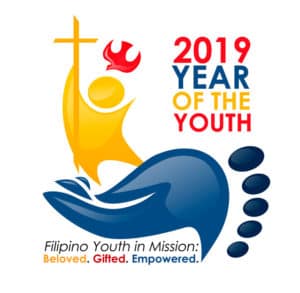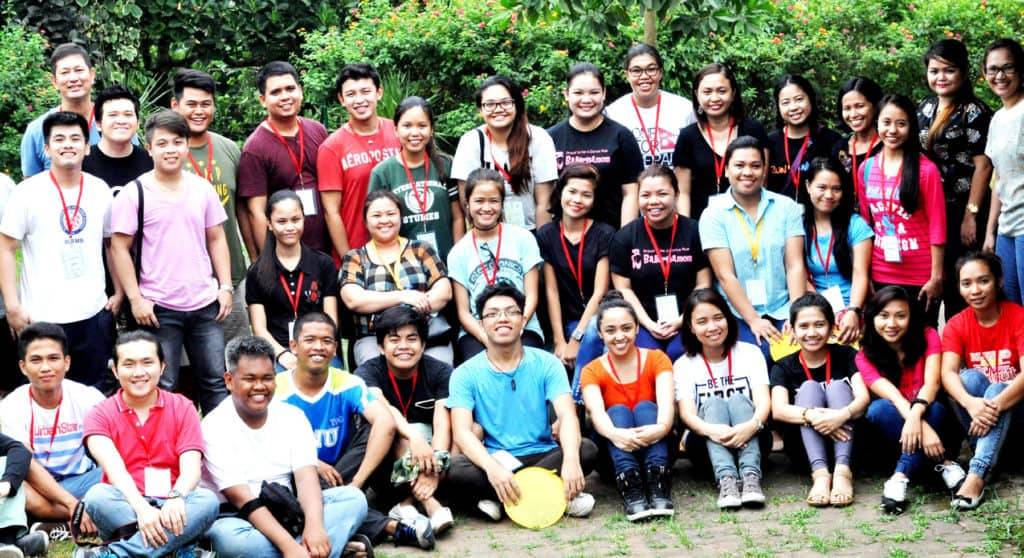Let us start from the beginning. In 2012, the Catholic Bishops’ Conference of the Philippines (CBCP) launched “a nine-year journey for the New Evangelization” to prepare the Filipino people for the 2021 Jubilee Year during which the 500th anniversary of the arrival of Christianity in the Philippines will be celebrated.
The Year of Youth is part of this program as we have seen from the themes designated for each year: Integral Faith Formation (2013); The Laity (2014); The Poor (2015); The Eucharist and the Family (2016); The Parish as a Communion of Communities (2017); The Clergy and Consecrated Persons (2018); The Youth (2019); Ecumenism, Indigenous People and Inter-Religious Dialogue (2020); and Missio ad gentes mission to the nations.
When the Philippine bishops declared 2019 as the Year of the Youth, in all probability, no one knew that the Synod of Bishops would convoke a General Assembly on the theme: “Youth, the Faith, and Vocational Discernment,” from October 3-28, 2018. Moreover, the 16th World Youth Day was already scheduled to be held in Panama on January 22-27, 2019, on the theme: “I am the servant of the Lord. May it be done to me according to your word” (Luke 1:38). Call it a coincidence. Call it God’s Providence. The fact is that this Year of the Youth has come with events that are making a strong impact on young people all over the world.
Before its official inauguration, the Filipino Youth wrote an open letter to the Catholic Church in the Philippines, expressing their hopes and expectations regarding the event. They identified four goals: 1) Youth in Formation; 2) Youth in the Community, Church, and Society; 3) Youth in Mission; 4) Youth Ministry and Youth Ministers.
In response to their letter, the CBCP wrote a pastoral letter affirming that the young people are beloved, gifted, empowered and in mission. Beloved, because the Church loves them with special affection, and wants to show them Christ’s love through its youth ministry that wants to raise them up and carry them lovingly through life.

They are Gifted with the Holy Spirit who inflames with faith, passion and courage, and with their own fresh and energetic youthfulness that enables them to commit themselves in the service of others and in renewing the Church and the world. Empowered, by being protagonists in building a better world and society, and a renewed Church, by being the dynamic force of the Church now as they reach out to the peripheries “to bring Jesus and His message of salvation to the lost, the least and the last,” including other young people.
They are In Mission, sent to make disciples for Jesus, envisioning that 2021 will be a time to celebrate a bountiful harvest of young people who, with renewed passion, are ready to work with their communities and the Church, and willing to share in molding a just and peaceful world.
The final appeal that the Bishops address to the youth is touching. “Awaken the shepherds in us, your elders, and rekindle the fire of faith, hope, and love in everyone in the Church so that together, we can journey and minister with you, as you serve the Church and your fellow youth.”
This calls to mind Christus Vivit, the letter that Pope Francis wrote to the Youth of the World after the General Assembly of the Synod of Bishops on Young People. He wrote: “Youth ministry … should involve a “journeying together” that values “the charisms that the Spirit bestows in accordance with the vocation and role of each of the Church’s members, through a process of co-responsibility… No one should be excluded or exclude themselves” (CV 206).
In this letter, the Holy Father emphasizes two main courses of action that youth ministry should take: outreach, which is the way to attract new young people to an experience of the Lord, and growth, which is helping those who have already had this experience mature it (see CV 209). In outreach, what is important is that each young person should be daring enough to sow the Christian message in the heart of another young person, approached with the language of love.
To grow, young people must renew and deepen their personal experience of the love of God and the living Christ and at the same time grow in fraternity, live as brothers and sisters, help one another build community and be of service to others (see CV 213-214).
He also speaks of an inclusive ministry, a Church with open doors, wherein it is not necessary to accept fully all the teachings of the Church to participate in its activities. He speaks of making room for all those who have other visions of life, who belong to their religions or who distance themselves from religion altogether, because all the young, without exception, are in God’s heart and therefore also in the Church’s heart (see CV. 234-235).
Nicole Anne Perez, a catechist from the Archdiocese of Manila, was present at the Synod as an auditor. She believes that there are many young people that the Church in Manila has not been able to reach. They are what we consider “youth in the peripheries.”

She observed that those who participate in the activities of the Archdiocese already go to church, participate in the ministry, or study in Catholic schools. There are no out-of-school youth or young people who have no means of getting an education, or who do not know the Church. She feels it is a challenge to reach out to them and make them feel the love of God.
Commenting on the Final Document of the Synod, she underlined the call to holiness, noting that the young people are not aware that everyone is called to holiness. This means “being Jesus” for the others, even while doing simple everyday acts but doing them because they are what Jesus wants. “It is about living what Jesus has taught us to do because Jesus is the role model for holiness.”
Young people will not be convinced about holiness if they do not see it lived. They are looking for authentic leader-models, credible people they can look up to.
What Nicole has taken with her from the Synod is a new attitude: Never give up! When she heard the Holy Father say that “someone loves you,” she felt that he was encouraging her never to give up. It is not often – she said – that someone says to young people: “There is someone who loves you.”
Our society – she continued — instead of lifting people up, tends to put them down. The Holy Father wants us to be aware that Christ is with us every step of the way, in spite of the negative things that are happening and that the young people are experiencing. Eventually, we will see everything from a different perspective.
The Year of the Youth that concludes is not a goal to reach but a starting point. Now it is up to us to go on. With Nicole, we might start by working on how to reach “the peripheries,” to strive for holiness which is a universal call to “live Jesus,” and never give up. The list could be very much longer.
The wish with which Pope Francis concluded his letter to the youth could be an encouragement for anyone of us. He writes: “My joyful hope is to see you keep running the race before you, outstripping all those who are slow or fearful. Keep running, attracted by the face of Christ, whom we love so much…. And when you arrive where we have not yet reached, have the patience to wait for us (CV 299).”




